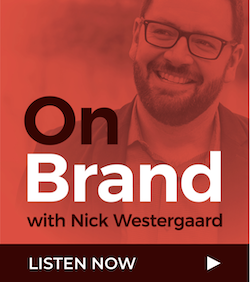Recently our firm has been charged with naming several products, services, and companies for our clients. This has given us the opportunity to standardize and streamline the frameworks and tools that we use when creating a brand name. As this is an issue that many struggle with, I’ve taken the liberty of compiling how we think about naming for your consumption and consideration.
Guiding Principle
A name is the cornerstone of our our overall brand development; it will be a hook that the marketplace will use to hang values on a new venture.
Key Attributes
While there’s no formula for creating the perfect brand name, there are many common key attributes that successful brand names have. A strong brand name is …
- Unique — duh.
- Easy to pronounce, spell, and memorize — This is a point many miss. Don’t worry about coming up with the next Google, Yahoo!, or Zazzle. Aim for the next Groupon or HomeAway — descriptive and categorical, and, most important of all, easy to learn.
- Evocative of your product/service/company benefits — Like all marketing, start with the benefits — with the actual impact on your customers or the marketplace.
- Suggestive to the product/service category — Again, think Groupon and HomeAway. Based on the name alone you have a general idea of what these companies do. What does a name like Altria tell you about what they do …?
Also of note …
- High imagery brand names are recalled at a higher rate — Anthony Shore summarizes some great research on his blog that illustrates why a brand name like Firefly is recalled at a higher rate than say General Software.
- Real-world names are also recalled better — Made-up words like Altria are harder to recall than JetBlue because the brain follows the path of least resistance and more pro-actively learns recognizable terms. Beyond actual, real-world words, variations on real words are recalled highly as well. That’s because the brain looks for that mnemonic hook to help it learn this new thing.
- Hard-to-recall names can be aided by a higher media spend for a teaching campaign but why wouldn’t you build the strongest brand name going out of the gate and aim for higher recall? In an era of rethinking how we spend money on paid media, we should work harder on the front end to create names that have legs of their own to travel virally.
And, of course you want a name that is …
- Trademarkable — Use the US Patent Office’s Trademark Electronic Search System (or TESS — acronyms are OK brand names) to conduct a quick trademark search.
- Aligned with an available .com or .org domain name — Unless you are really married to a concept, I advise steering clear of .nets, .biz, etc. These too are harder to recall than the more ubiquitous domain options. You’ll want to keep your favorite domain registrar open in a tab as you search and get creative.
- Usable on Twitter — Along with domain availability, you have to consider Twitter handle availability as well.
- Don’t forget to Google your brand name idea as well. Even if someone doesn’t own the domain or have a trademark established you could find someone on the web squatting on your concept or something very close to it. It pays to learn what’s out there in advance.
Again, real-world terms trump made up words. One way to get at unique variations on real-world terms is to combine words or slightly alter them. Here are some great name generator websites I use to get the creative naming juices flowing:
- Nameboy — a name generator that also adds URL availability in search results. You start with a primary word and it works to combine that word (or a synonym) with a secondary word (or synonym) of your choosing. Have your keywords ready and plug away.
- Wordoid is another innovative word creation tool that helps you start with one of those real-world words that we know are cognitive triggers and make them your own by developing custom prefixes and suffixes. This site has the added bonus of providing domain availability as well.
Finally, if you need more inspiration, I would direct you back to this post on Naming a Business by Seth Godin. It’s a classic with great advice on why it’s OK if your friends hate your name idea (I love that he speculates what ‘helpful advice’ friends would’ve offered the Starbucks’ founders had they asked around about naming their business after a minor character from Moby Dick).
The Brand-Driven Insight? Shakespeare’s Juliet once asked, “What’s in a name?” Um … A LOT, Jules. Choose wisely. Don’t get scared but naming is one of the biggest decisions you will make in the course of brand development. It should be labored over. You should have some spirited debate. However, you’re not alone. There are many great insights out there. These are my tips and tools on the subject but there are many more. If you have others you’d like to share, feel free to post them in the comments below.









